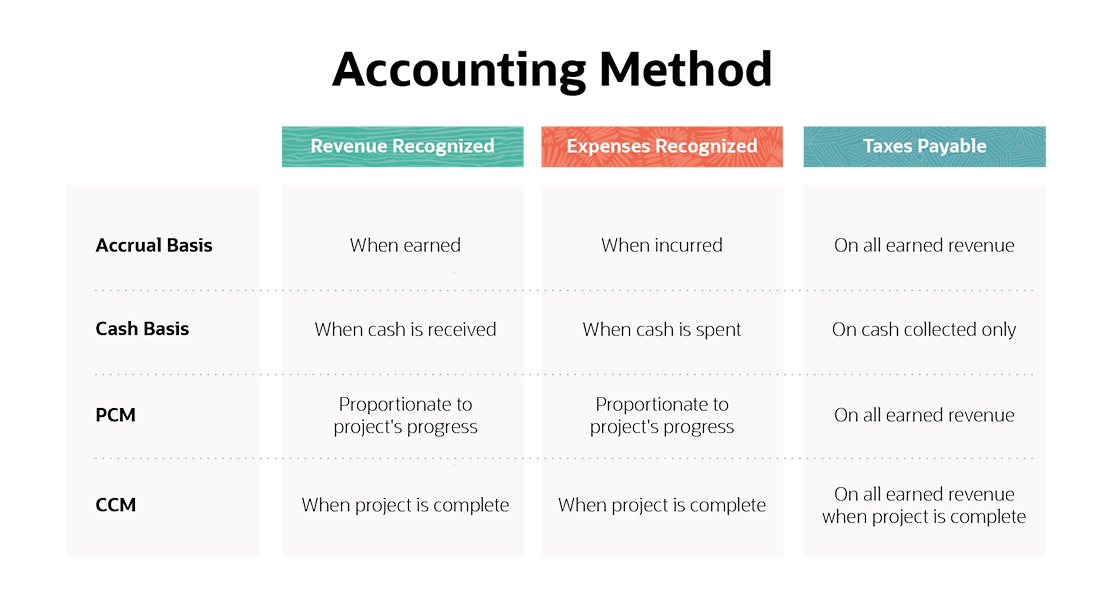Comprehending the Importance of Construction Accountancy for Successful Project Monitoring

Role of Building Audit
Construction audit functions as the backbone of financial management in the building and construction industry, guaranteeing that projects are finished within spending plan and financial objectives are fulfilled. construction accounting. This customized bookkeeping approach addresses the distinct difficulties dealt with in construction projects, including varying project durations, changing prices, and multiple stakeholders
Among the main functions of construction accounting is to provide accurate expense evaluation and tracking throughout the task lifecycle. This facilitates enlightened decision-making, enabling task supervisors to change timelines and sources properly. In addition, construction audit improves capital management by keeping track of accounts receivable and payable, hence making certain that funds are readily available for prompt payments to suppliers and subcontractors.
It outfits project supervisors with the necessary monetary data to prepare detailed monetary declarations, which are important for audits and economic testimonials. Ultimately, the function of building and construction accounting prolongs beyond plain economic tracking; it is essential to calculated preparation and functional performance, driving the success of construction projects in a competitive landscape.
Secret Elements of Building And Construction Accounting

Budgeting establishes a financial structure that overviews project implementation, enabling managers to allot sources efficiently and prepare for prospective financial difficulties. Exact expense tracking is crucial for tracking expenses in real-time, aiding to identify differences between predicted and actual expenses. This allows timely modifications to maintain the project on budget plan.
Additionally, monetary coverage provides stakeholders with a clear picture of the task's monetary wellness. Regular reports, such as revenue and loss declarations and cash money flow analyses, assist in informed decision-making and improve transparency amongst all events involved.
Furthermore, compliance with market laws and accountancy requirements is critical. This ensures that economic methods are not just effective however additionally legal, safeguarding the company against legal consequences. By incorporating these key elements, building and construction audit promotes an organized strategy to handling economic sources, ultimately adding to the effective completion of building tasks.
Benefits for Job Managers
Leveraging reliable construction accountancy practices supplies job supervisors with a wide range of advantages that enhance both functional efficiency and financial oversight. One significant benefit is boosted spending plan monitoring. Accurate monitoring of profits and expenditures permits project supervisors to keep track of monetary efficiency in real time, making sure projects stay within spending plan and go to the website promoting prompt modifications when required.
In addition, construction bookkeeping simplifies money circulation administration, enabling job managers to expect monetary demands and optimize resource allocation. By recognizing money inflows and outflows, they can better take care of payments to distributors, employees, and subcontractors, thereby avoiding pricey hold-ups.
Furthermore, robust accounting systems offer comprehensive coverage capacities. Project supervisors can generate records that offer insights right into project profitability, expense differences, and source application. This data-driven method fosters informed decision-making, enabling supervisors to identify potential issues proactively and apply corrective measures.
Last but not least, adherence to building and construction audit standards makes sure conformity with legal and governing requirements, minimizing the danger of disagreements or charges. Generally, effective building accountancy outfits job supervisors with the devices necessary to drive task success, enhance stakeholder confidence, and advertise lasting business development.
Usual Difficulties in Building And Construction Accountancy
Many task managers encounter significant challenges in building and construction accounting that can hinder job success. One of the main difficulties is the intricacy of tracking several work websites, each with distinct budgets, timelines, and resource allotments. This calls for thorough focus to information, which can be frustrating without a durable accounting system in area.
In addition, changing product costs and labor rates can complicate budget administration, making precise forecasting challenging. Task supervisors often have a hard time to reconcile these expenses with actual expenditures, bring about prospective economic discrepancies.
Moreover, building and construction audit entails conformity with numerous policies, including tax obligation responsibilities and labor laws. Browsing these policies can be daunting, particularly for managers that might not have a solid audit history.
Another substantial challenge is managing capital, which is essential in the building and construction industry. Hold-ups in websites invoicing, repayments from clients, or unforeseen job changes can develop capital lacks, threatening the job's progress.
Finally, effective interaction between project supervisors, accountants, and field teams is vital. Misunderstandings can result in incorrect economic coverage, additionally complicating job management efforts. Addressing these difficulties proactively is essential for effective building and construction audit.

Ideal Practices for Effective Accounting
While navigating the intricacies of construction bookkeeping can be complicated, taking on finest techniques can significantly enhance economic monitoring and task success. One essential technique is keeping precise and timely documents. Applying durable bookkeeping software application tailored to construction projects can simplify data entrance, invoicing, and reporting, lowering mistakes and saving time.
Furthermore, establishing a clear budget and normal tracking against this spending plan are critical. Utilizing a system of periodic economic evaluations allows task managers to identify differences early, assisting in timely decision-making. It is additionally important to separate job costs right into indirect and straight classifications, making it possible for clearer understandings into profitability.
An additional best technique involves promoting open communication among all stakeholders. Normal updates and collective conversations about economic status can make read here sure everyone is lined up and educated. Training personnel in construction-specific accounting principles better enhances proficiency and precision.
Finally, making certain compliance with appropriate audit standards and guidelines is non-negotiable. Normal audits and internal evaluations add to transparency and responsibility, constructing trust with stakeholders and clients. By concentrating on these ideal practices, building companies can enhance their audit processes, ultimately driving job success and financial stability.
Final Thought
Finally, construction bookkeeping plays an essential duty in making certain successful project management by assisting in precise economic oversight and boosting decision-making. By incorporating vital parts such as cost estimation, cash flow management, and compliance, project managers can browse usual obstacles and leverage ideal practices for reliable audit. Inevitably, a durable building and construction audit structure not just safeguards budget plan stability however also contributes to the general monetary health of construction projects, cultivating lasting success within the market.
By integrating these key parts, building and construction accountancy promotes a structured approach to taking care of economic resources, ultimately adding to the effective completion of construction tasks.
Precise tracking of expenditures and profits permits job managers to keep an eye on monetary efficiency in genuine time, making certain tasks remain within budget and facilitating prompt modifications when required.
Task managers can generate records that offer understandings into task earnings, cost differences, and resource utilization.Lots of project supervisors experience substantial difficulties in construction accountancy that can hinder job success. construction accounting. Ultimately, a robust building and construction bookkeeping structure not only safeguards spending plan integrity however additionally contributes to the total financial health and wellness of construction jobs, cultivating sustainable success within the market